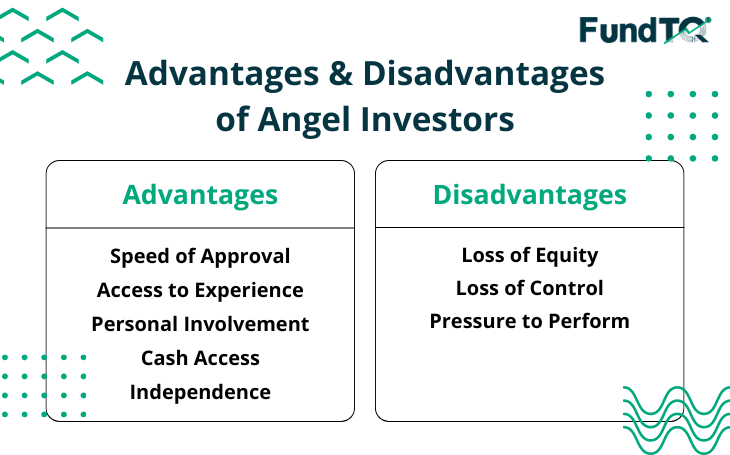How to Find Angel Investors – A Comprehensive Guide
Securing early-stage funding is one of the most critical steps for a startup’s success. For many entrepreneurs, angel investors provide the perfect solution. These high-net-worth individuals offer capital in exchange for equity in your company, often filling the gap between self-funding and larger venture capital investments. However, knowing how to find angel investors and approach them effectively requires careful strategy and preparation.
In this comprehensive guide, we’ll walk you through everything you need to know about approaching angel investors and increasing your chances of securing the funding your startup needs.
What Are Angel Investors?
Before diving into how to find angel investors, it’s important to understand who they are. Angel investors are typically individuals who use their personal wealth to invest in startups at the early stages. In addition to providing financial backing, angel investors often offer valuable industry expertise, mentorship, and access to their professional networks.
Angel investors have more freedom in their investment choices because they employ their own cash rather than venture capitalists’, who oversee funds. Because of this, they are especially appealing to businesses that wish to use experience while requiring less cash.
How to Find Angel Investors?
The first step in securing funding is knowing how to find angel investors who are a good fit for your business. Here are some strategies to help you locate potential investors:
1. Angel Networks: A large number of angel investors are members of angel networks or clubs. These groups enable investors to combine their resources and decide how best to finance businesses. Golden Seeds, Tech Coast Angels, and AngelList are a few examples. Look through these networks to find angel investors in your sector or area.
2. Startup Events and Conferences: Industry-specific events, pitch competitions, and conferences are great places to meet angel investors. Many investors attend these events to discover new investment opportunities.
3. Online Platforms: Startups can connect with angel investors using websites such as AngelList and Gust. You may use these sites to promote your company, draw in investors, and even send pitch decks to potential customers directly.
4. Professional Networks: Make use of your professional and personal connections to request angel investor introductions. A lot of angel investors choose funding businesses that are recommended by reliable people.
5. LinkedIn and Social Media: Angel investors can also be found through social media channels. To establish a relationship, interact with investors in your sector on Twitter or LinkedIn and take part in online forums.
Get fundraising consultancy now
Crafting Your Pitch
Once you’ve identified potential angel investors, the next step is creating a compelling pitch that captures their attention. Here’s how to tailor your pitch to angel investors:
1. Highlight the Problem and Solution: Explain in detail the issue your startup resolves and the distinctiveness of your solution. Investors want to know how your firm will affect the actual world.
2. Show Market Opportunity: Startups with significant growth potential are of interest to angel investors. To demonstrate that there is a market for your product or service, present facts about your target market, trends, and client acquisition approach.
3. Solid Business Model: A clear route to profitability must be visible to investors. Make sure your business plan is clear and explains how you plan to generate revenue and grow your company.
4. Traction and Milestones: Highlight any success you’ve had, like new product launches, client acquisition, collaborations, or sales. Startups that have shown growth and accomplished significant milestones have a higher chance of attracting investors.
5. Financial Projections: Provide reasonable financial estimates for the ensuing three to five years. Investors want to know that you have thoroughly researched and comprehended the financial possibilities of your firm.
Building Relationships with Angel Investors
Approaching angel investors isn’t just about the pitch—it’s about building long-term relationships. Here’s how to create a positive impression and develop a connection:
1. Do Your Research: Investigate an investor’s prior investments, interests, and desired investment size prior to meeting with them. This helps you customize your strategy and guarantees that you’re aiming for the correct angel investors.
2. Engage in Open Dialogue: Investors are assessing you as the founder in addition to the business. Be open and honest about your objectives, difficulties, and what you’re seeking in addition to financial support. A lot of investors want to actively participate in the expansion of your firm.
3. Follow-up: Following your first meeting, thank the investor and restate important points in a follow-up email. You may show professionalism and stay on their radar by communicating regularly.
Preparing for Due Diligence
Once an angel investor expresses interest, they will likely conduct due diligence to verify your claims and ensure the investment opportunity is solid. Be prepared to provide additional documentation, including:
1. Business Plan
Your strategy, business model, marketing plans, and risk analysis are all laid out in a thorough business plan. It should contain market research, an executive summary, and a detailed description of how your firm makes money. Investors must examine how you plan to grow and acquire new clients. Include a risk analysis as well to demonstrate that you have recognized obstacles and devised strategies to overcome them.
2. Financial Statements
Provide up-to-date financial records, including profit-and-loss statements, cash flow statements, and balance sheets. These documents show your financial health, revenue streams, and how well-positioned you are for future growth.
3. Legal Documents
Be ready with intellectual property filings, contracts, and shareholder agreements to demonstrate legal compliance and protect your business.
Be Ready to Negotiate
When you find angel investors willing to fund your startup, negotiations will likely follow. Angel investors often invest in exchange for equity, so be clear about how much of your company you’re willing to give up. Ensure that any terms, such as board seats, voting rights, or involvement in decision-making, align with your vision for your business.
While angel investors can provide invaluable support, it’s essential to protect your interests and ensure that you’re partnering with someone who shares your goals.
Final Thoughts
A startup’s trajectory can be greatly impacted by knowing how to locate angel investors and how to approach them. From developing a strong proposal to establishing enduring connections, the process calls for planning, perseverance, and strategic networking. These steps will put you in a good position to get early-stage investment that will help you grow your company.
Approaching angel investors with confidence and clarity will not only help you get the funding you need but also open doors to mentorship, guidance, and invaluable connections in your industry.





